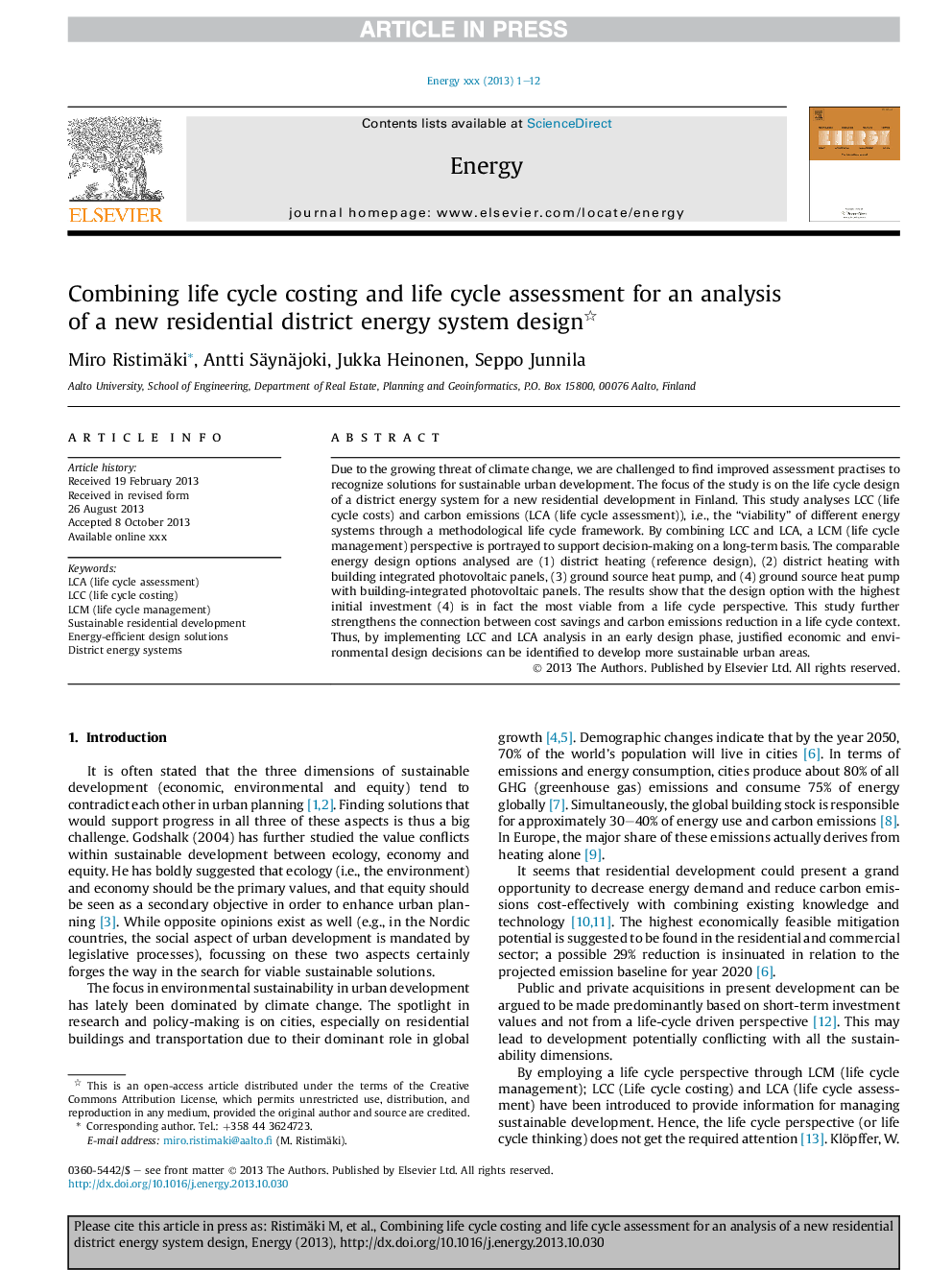| Article ID | Journal | Published Year | Pages | File Type |
|---|---|---|---|---|
| 8078959 | Energy | 2013 | 12 Pages |
Abstract
Due to the growing threat of climate change, we are challenged to find improved assessment practises to recognize solutions for sustainable urban development. The focus of the study is on the life cycle design of a district energy system for a new residential development in Finland. This study analyses LCC (life cycle costs) and carbon emissions (LCA (life cycle assessment)), i.e., the “viability” of different energy systems through a methodological life cycle framework. By combining LCC and LCA, a LCM (life cycle management) perspective is portrayed to support decision-making on a long-term basis. The comparable energy design options analysed are (1) district heating (reference design), (2) district heating with building integrated photovoltaic panels, (3) ground source heat pump, and (4) ground source heat pump with building-integrated photovoltaic panels. The results show that the design option with the highest initial investment (4) is in fact the most viable from a life cycle perspective. This study further strengthens the connection between cost savings and carbon emissions reduction in a life cycle context. Thus, by implementing LCC and LCA analysis in an early design phase, justified economic and environmental design decisions can be identified to develop more sustainable urban areas.
Related Topics
Physical Sciences and Engineering
Energy
Energy (General)
Authors
Miro Ristimäki, Antti Säynäjoki, Jukka Heinonen, Seppo Junnila,
